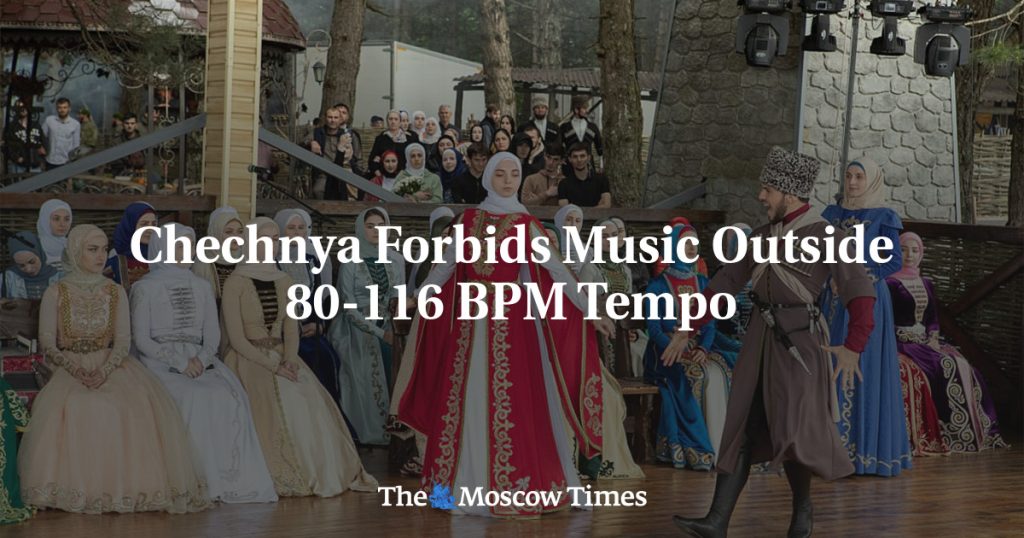Authorities in Chechnya have announced a new restriction on music tempos, with all musical, vocal, and choreographic works now required to be within the range of 80 to 116 beats per minute. This decision was made to align with the strict cultural norms of the deeply conservative Muslim-majority region. Chechen Culture Minister Musa Dadayev, following instructions from Chechen leader Ramzan Kadyrov, is overseeing the implementation of this new tempo standard. Dadayev stressed the importance of ensuring that Chechen music reflects the unique cultural identity of the region.
In a statement released by the Chechen Culture Ministry, it was made clear that the goal of these restrictions is to make Chechen music align with the Chechen mentality. The Ministry emphasized that borrowing musical culture from other peoples is unacceptable, and local artists were given a deadline of June 1 to adjust their music to comply with the new tempo standard. Failure to do so would result in their music being prohibited from public performance. This move has sparked debate among artists and residents in Chechnya, with some questioning the necessity and impact of these restrictions on the local music scene.
The decision to impose limits on music tempos in Chechnya has raised concerns about artistic freedom and cultural expression in the region. While the new tempo standard falls within the range of many popular and traditional music genres, it restricts the creative freedom of artists to explore different tempos and styles. Chechen Culture Minister Musa Dadayev’s directive to local artists to rewrite their music to match the specified tempo range has led to uncertainty and discontent within the artistic community. Some artists fear that these restrictions could stifle creativity and limit the diversity of musical expression in Chechnya.
Chechnya is known for its deeply conservative Muslim culture, and the authorities’ decision to regulate music tempos is seen as an attempt to uphold traditional values and norms in the region. Chechen leader Ramzan Kadyrov’s instructions to align Chechen music with the Chechen mentality reflect a desire to preserve the cultural identity and heritage of the region. However, critics argue that these restrictions could hinder artistic innovation and limit the ability of Chechen artists to engage with a wider range of musical influences. The tension between cultural preservation and artistic freedom is at the heart of the debate surrounding the new tempo regulations in Chechnya.
The enforcement of the new tempo restrictions in Chechnya has sparked discussions about the role of the state in regulating cultural expression and artistic practices. While some view these restrictions as a necessary measure to protect Chechen cultural heritage, others see them as an infringement on artistic freedom and creative autonomy. The requirement for local artists to conform to the 80-116 BPM tempo range has raised questions about the boundaries between cultural preservation and artistic innovation in Chechnya. As the deadline for compliance approaches, artists and cultural practitioners in the region are grappling with how to navigate these new regulations while staying true to their creative vision.
Overall, the imposition of limits on music tempos in Chechnya highlights the complex interplay between cultural traditions, artistic freedom, and state intervention in the realm of music and creative expression. While the authorities may have valid concerns about preserving Chechen cultural identity, the restrictions on music tempos have generated controversy and divided opinions among artists and residents in the region. Moving forward, it remains to be seen how Chechen artists will adapt to these new regulations and whether the tempo restrictions will ultimately enhance or inhibit the vibrancy and diversity of the local music scene.


